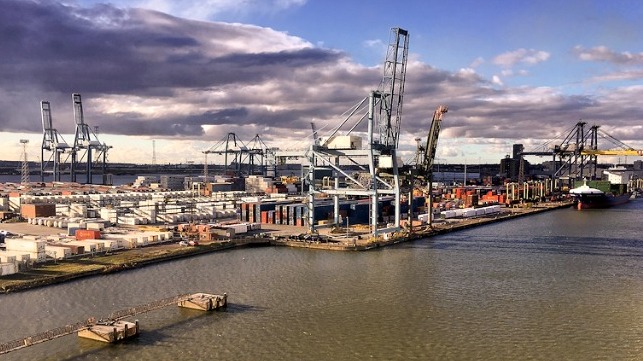British Ports Association Warns Against Diesel Tax Hike

In a new report released Friday, the British Ports Association (BPA) expressed its opposition to a government policy that would effectively raise taxes on the off-highway diesel fuel that ports use to power everyday operations.
The BPA estimates that the end of the $2.26-per-gallon tax rebate in 2022 would increase ports' costs by about three percent of port turnover. BPA's modeling suggests that an 'average' terminal will be hit with additional fuel costs of nearly $650,000 a year, with bigger operations' costs running into the millions.
In 2019, the UK government announced that it would end a tax rebate for non-road mobile machinery (NRMM) like tractors, locomotives and straddle carriers. However, the government decided that it would exempt three industries - heating, rail and farming - because of the perceived high impact from the additional tax costs. With its new report, the BPA hopes to show that the port sector would experience similar negative effects.
In its report, BPA suggests a negative outlook for the near-term for port electrification. It argues that the alternatives for most classes of diesel-powered port equipment are "extremely limited," and where electric alternatives do exist, they are "significantly more expensive, less productive and generally less capable." In addition, local electrical grids typically lack the capacity to provide enough power for an all-electric port (a common problem that also impedes vessel electrification and cold-ironing). According to BPA, 70 percent of English ports are in areas where the grid is at or near capacity.
BPA argues that if ports are forced to switch to non-diesel equipment, the cost will likely be passed on to the customer in the form of tariff increases and cargo handling charges. If costs are absorbed by the port, it could have a negative effect on further investments. At worst, BPA warned, the change might make UK coastwise shipping less economically competitive, driving a "reverse modal shift" to more carbon-intensive forms of transportation like domestic trucking.
"With no viable alternatives for ports to turn to these changes could actually set us back on [emissions]," said Phoebe Warneford-Thomson, BPA's policy and economic analyst. "BPA modeling indicates that these extra costs will be worth 3.10 percent of each port’s turnover . . . perversely increasing emissions through encouraging modal shift from coastal shipping to road transport. We are asking Government to postpone this decision to 2030, at which point they should review the maturity of alternatively powered [diesel equipment] markets and determine if viable alternatives are indeed available. At the very least, a phased approach is needed to ensure that ports do not have to deal with cost increases of up to 130 percent on one of their biggest expenses."
